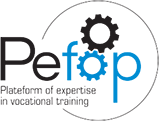31 African countries share their experiences on the quality of TVET systems to foster training-to-work transition

The Regional Exchange Workshop in Nairobi was organized in the framework of the partnership between the IIEP-UNESCO Dakar and the Luxembourg Agency for Development Cooperation (Lux-Dev) and the Institute of La Francophonie for the Education and Training (IFEF) built since the organization of the 1st Regional Exchange Workshop of March 2018 in Dakar on the theme of PPP in vocational training.
A total of 130 participants from 31 countries from five regions of Africa attended this workshop: Benin, Botswana, Burkina Faso, Burundi, Cameroon, Congo, Côte d’Ivoire, Djibouti, DR Congo, Ethiopia, Gambia, Ghana, Guinea, Kenya, Madagascar, Malawi, Mali, Morocco, Mauritius, Mauritania, Namibia, Niger, Nigeria, Senegal, Tanzania, Tunisia, Chad, Togo, Uganda, Zambia and Zimbabwe.
They represented both the central level (TVET directorates, umbrella organizations of employers and professional branches) and the local level (school directors, trainers, regional TVET managers). The workshop also benefited from the active participation of representatives of pan-African and international networks and organizations of vocational training, representatives of development partners (DPs) supporting vocational training in Africa and representatives of technical and research organizations and institutions. See the list of participants by clicking here
Representing the host country, the Principal Secretary of the TVET Department of the Ministry of Education of Kenya, Dr Kevit DESAI, addressed the plenary session on the second day to explain how much this quality system TVET approach / training-to-employment transition was at the heart of the Kenyan approach.
Youth employability and entrepreneurship were discussed from several angles and in a fruitful way by the different actors from African countries present within the framework of three thematic days structured around group work (three parallel groups per day) whose results reflect the richness and diversity of African experiences. See the workshop agenda by clicking here
The first day focused on "managing and strengthening national qualifications systems to improve the quality of learning outcomes and their consistency with the skills needs of the economy":
- public-private partnerships between vocational training schemes and companies on certification;
- the organisation and management of assessment and certification systems and the development of national and supranational qualification frameworks;
- models, practices and operational approaches for the Recognition of Prior Learning.
The second day dealt with "the management of vocational training institutions and centres, including renewed apprenticeship":
- the pillars of excellence in the management of training institutions and centres;
- the development of training methods in relation to companies (renewed apprenticeship, work-study, apprenticeship in a work situation, etc.)
- key performance indicators and monitoring and evaluation at the level of training institutions and centres.
The third day focused on "mechanisms for monitoring the integration of school leavers able to support the improvement of the quality of training and the regulation of training provision":
- active support for integration at the level of training institutions and centres;
- the devices for monitoring insertion;
- the dynamics generated by the follow-up of the effective insertion.
In addition, a plenary session entitled "Partners' Panel" allowed the DPs representatives present to briefly describe how the support they provide in African countries contributes to strengthening the mechanisms in the strategic areas addressed during the workshop. The following were represented on this panel: AFD (Paris), SDC (West Africa/Cotonou), Enabel (Burundi and Guinea), GIZ (Ethiopia and Tunisia), UNESCO (Paris), UNEVOC (Bonn).
The results of the three days of work were summarized and presented at the end of the workshop by the workshop rapporteur. See the oral synthesis by clicking here
A comprehensive thematic report will be produced and distributed in both languages.
The scoping concept notes, the presentations made during the group work, the synthesis of each working group, the general synthesis of the workshop but also the country experience sheets prepared before the workshop and various documents shared by the participants are available on a shared folder on the IIEP server, accessible by clicking on this link
--------
This workshop was organised with the support of the French Development Agency (AFD) and the European Commission's Support Facility for TVET (VET-Toolbox).
In addition, some national delegations in their countries were able to benefit from the support of partners for their participation in the workshop, such as AFD, SDC, Enabel, GIZ, ILO, VVOB, UNESCO and UNICEF

